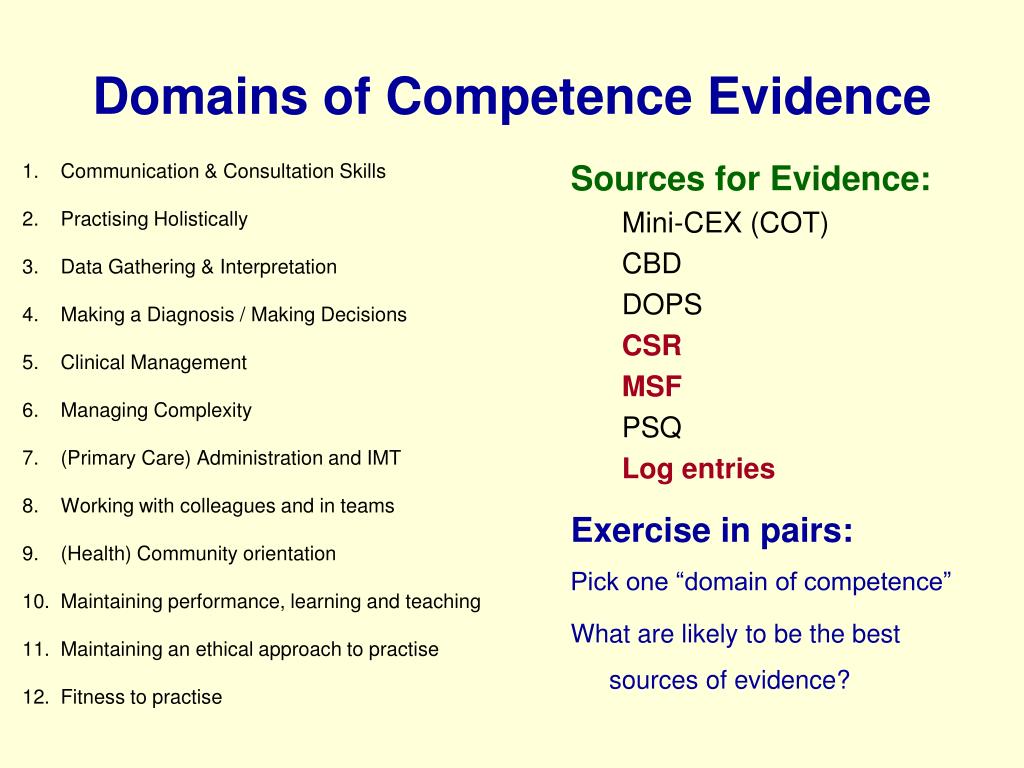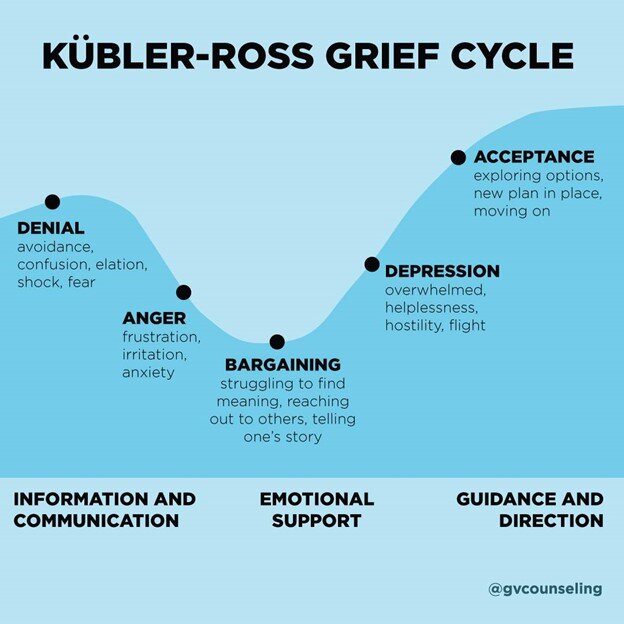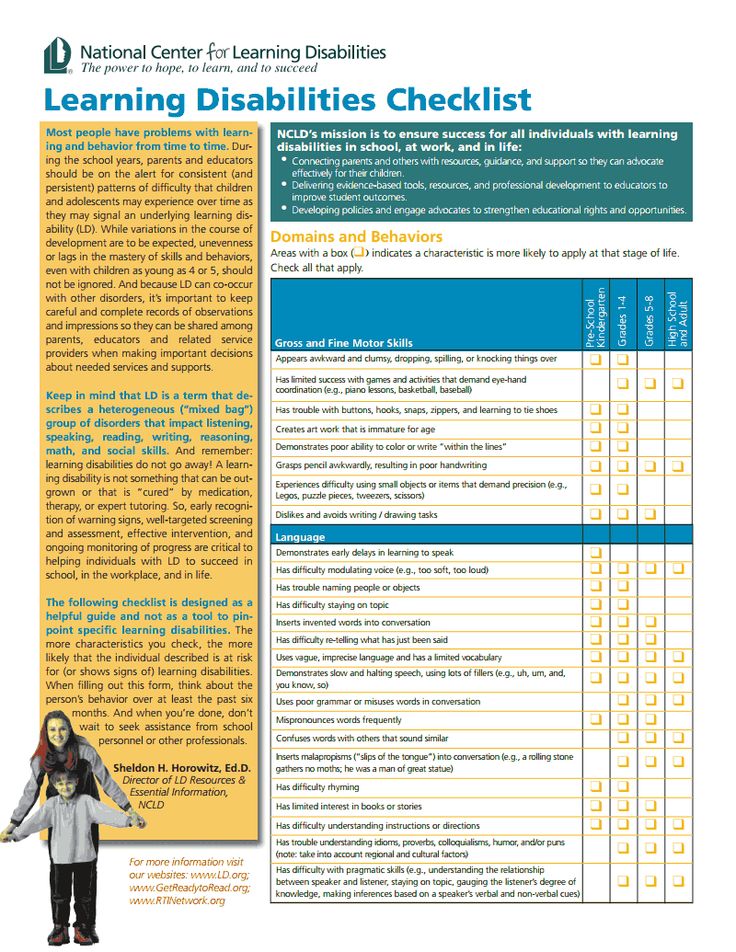Fear emotional intimacy
Understanding Fear of Intimacy
Fear of Intimacy: Understanding Why People Fear Intimacy
What is Fear of Intimacy?
Fear of intimacy is an often subconscious fear of closeness that frequently affects people’s personal relationships. This fear of physical and/or emotional intimacy tends to show up in people’s closest and most meaningful relationships.
Where Does This Fear of Intimacy Come From?
While there are times when we are aware of actually being apprehensive and distrusting of love, we are more likely to identify these fears as concern over potentially negative outcomes: rejection, the deterioration of a relationship or feelings of affection that aren’t returned. However, our fear of intimacy is often triggered by positive emotions even more than negative ones. In fact, being chosen by someone we truly care for and experiencing their loving feelings can often arouse deep-seated fears of intimacy and make it difficult to maintain a close relationship.
Why Do Positive Feelings Trigger a Fear of Intimacy?
It may be surprising to learn that the real resistance to intimacy often doesn’t come from the acts of our partners, but from a lurking enemy within us.
The problem is that the positive way a lover sees us often conflicts with the negative ways we view ourselves. Sadly, we hold on to our negative self-attitudes and are resistant to being seen differently. Because it is difficult for us to allow the reality of being loved to affect our basic image of ourselves, we often build up a resistance to love.
Where Do These Negative Attitudes Come From?
These negative core beliefs are based on deep-seated feelings that we developed in early childhood of being essentially bad, unlovable or deficient. While these attitudes may be painful or unpleasant, at the same time they are familiar to us, and we are used to them lingering in our subconscious. As adults, we mistakenly assume that these beliefs are fundamental and therefore impossible to correct.
How Does Fear of Intimacy Affect Us?
We don’t intentionally reject love to preserve a familiar identity. Instead, during times of closeness and intimacy, we react with behaviors that create tension in the relationship and push our loved one away.
Here are some common ways people distance themselves emotionally as a result of a fear of intimacy:
- Withholding affection
- Reacting indifferently or adversely to affection or positive acknowledgement
- Becoming paranoid or suspicious of a partner
- Losing interest in sexuality
- Being overly critical of a partner
- Feeling guarded or resistant to being close
How to Overcome a Fear of Intimacy?
In order to overcome our fear of intimacy, we must challenge our negative attitudes toward ourselves and not push our loved ones away. It is possible to challenge our core resistance to love. We can confront our negative self-image and grow our tolerance for a loving relationship.
We can overcome our fears of intimacy and enjoy more loving and more intimate relationships.
More on the Fear of Intimacy
Love is not only hard to find, but strange as it may seem, it can be even more difficult to accept and tolerate. Most of us say that we want to find a loving partner, but many of us have deep-seated fears of intimacy that make it difficult to be in a close relationship. The experience of real love often threatens our self-defenses and raises our anxiety as we become vulnerable and open ourselves up to another person. This leads to a fear of intimacy. Falling in love not only brings excitement and fulfillment; it also creates anxiety and fears of rejection and potential loss. For this reason many people shy away from loving relationships.
Fear of intimacy begins to develop early in life. As kids, when we experience rejection and/or emotional pain, we often shut down. We learn not to rely on others as a coping mechanism. We may even begin to rely on fantasy gratification rather actual interactions with other people; unlike people, fantasies cannot hurt us. Overtime, we may prefer these fantasy over actual personal interactions and real positive acknowledgment or affection. After being hurt in our earliest relationships, we fear being hurt again. We are reluctant to take another chance on being loved.
Overtime, we may prefer these fantasy over actual personal interactions and real positive acknowledgment or affection. After being hurt in our earliest relationships, we fear being hurt again. We are reluctant to take another chance on being loved.
If we felt unseen or misunderstood as children, we may have a hard time believing that someone could really love and value us. The negative feelings we developed toward ourselves in our early years, became a deeply embedded part of who we think we are. Therefore, when someone is loving and reacts positively toward us, we experience a conflict within ourselves. We don’t know whether to believe this new person’s kind and loving point of view of us or our old, familiar sense of our identity. So, we often react with suspicion and distrust when someone loves us, because our fear of intimacy has been aroused.
Our capacity to accept love and enjoy loving relationships can also be negatively affected by existential issues. When we feel loved and admired, we start to place more value on ourselves and begin to appreciate life more. This can lead us to feel more pain about the thought of death. We fear both the loss of our loved one and of ourselves, and in the process many of us unconsciously pull back from our relationships. Fear of death tends to increase the fear of intimacy.
This can lead us to feel more pain about the thought of death. We fear both the loss of our loved one and of ourselves, and in the process many of us unconsciously pull back from our relationships. Fear of death tends to increase the fear of intimacy.
Even though the fear of intimacy is a largely unconscious process, we can still observe how it effects our behavior. When we push our partner away emotionally or retreat from their affection, we are acting on this fear of intimacy. Holding back the positive qualities that our partner finds most desirable is another way we act on this fear. We often try to make ourselves less lovable, so we don’t have to be as afraid of being loved. These distancing behaviors may reduce our anxiety about being too close to someone, but they come at a great cost. Acting on our fears preserves our negative self-image and keeps us from experiencing the great pleasure and joy that love can bring.
However, we can overcome fear of intimacy. We can develop ourselves to stop being afraid of love and let someone in. We can recognize the behaviors that are driven by our fear of intimacy and challenge these defensive reactions that preclude love. We can remain vulnerable in our love relationship by resisting retreating into a fantasy of love or engaging in distancing and withholding behaviors. We can maintain our integrity, learn to “sweat through” the anxiety of being close without pulling away, and gradually increase our tolerance for being loved. By taking the actions necessary to challenge our fear of intimacy, we can expand our capacity for both giving and accepting love.
We can recognize the behaviors that are driven by our fear of intimacy and challenge these defensive reactions that preclude love. We can remain vulnerable in our love relationship by resisting retreating into a fantasy of love or engaging in distancing and withholding behaviors. We can maintain our integrity, learn to “sweat through” the anxiety of being close without pulling away, and gradually increase our tolerance for being loved. By taking the actions necessary to challenge our fear of intimacy, we can expand our capacity for both giving and accepting love.
Overcoming the Fear of Intimacy
Length: 90 Minutes
Price: $15
On-Demand Webinars
In this Webinar: What prevents most people from being able to sustain romantic, meaningful relationships that satisfy their needs and desires? Why do…
Learn More
About the Author
Related Articles
Tags: afraid of intimacy, couple, defenses, fear of intimacy, intimacy, love, marriage, Must Read, relationship
Fear Of Intimacy: 8 Signs + How To Heal, From Therapists
If you crave intimacy but have a pattern of sabotaging connections when it starts to matter, it may be because of a fear of intimacy. We asked therapists to explain what causes a fear of intimacy, how to recognize if this is what's happening to you, and what to do about it.
We asked therapists to explain what causes a fear of intimacy, how to recognize if this is what's happening to you, and what to do about it.
What does it mean to have a fear of intimacy?
When someone has a fear of intimacy, they struggle with forming and maintaining significant relationships because it's difficult for them to be vulnerable with themselves and with others. They might seem emotionally open and have a lot of friends and family around—but always within limits.
When someone wants to connect on a deeper level, the person with intimacy issues may even want it too, but the fear of possible hurt is stronger. So, they respond with a set of avoidant behaviors designed to protect their inner world. As they're reacting, they may not be aware that they're even pushing people out. They're just doing what feels safe.
"All of this is not a conscious decision to hide these parts of yourself. It's survival," licensed marriage and family therapist Alison Gomez, LMFT, tells mbg. "A misconception is that it should feel easy to be intimate with people you care about, but that's not necessarily true. Intimacy is not always safe with everyone, even if it is someone you love."
"A misconception is that it should feel easy to be intimate with people you care about, but that's not necessarily true. Intimacy is not always safe with everyone, even if it is someone you love."
Definition:
A fear of intimacy is a deep-seated aversion to developing and maintaining closeness with others, particularly in romantic relationships.
Advertisement
This ad is displayed using third party content and we do not control its accessibility features.
What is intimacy?
To understand the fear of intimacy, it's important to understand what intimacy itself is. Intimacy means we're able to honestly reveal our true self to others and connect profoundly in that way.
Intimacy can be nurtured through sexual, emotional, intellectual, experiential, and spiritual experiences. There are also different types of intimacy that we can holistically share with someone else, including:
- Emotional intimacy: Telling each other your deepest fears, dreams, disappointments, and most complicated emotions, as well as feeling seen and understood when you do.

- Intellectual intimacy: Communicating beliefs and viewpoints without worrying about potential conflicts. Each person in the relationship has the freedom to think for themselves and believes that their opinions are valued—instead of feeling pressured to agree.
- Experiential intimacy: Participating in shared experiences that lead to inside jokes and private moments that escalate a connection. The act of teamwork and moving in unison toward a common goal while creating an experience also establishes a feeling of closeness.
- Spiritual intimacy: Having poignant moments with someone. It can look like enjoying the beauty of nature, sharing awe-inspiring moments, as well as discussing ethics, sense of purpose, or personal definitions of spirituality.
Find your match today with eHarmony. Free to join.
For intimacy to foster in each of these experiences, licensed marriage and family therapist Saba Harouni Lurie, LMFT, notes there's a genuine reciprocity of vulnerability, compassion, and care needed when sharing who we are with the people in our life.
But "if someone's never comfortably experienced this in their initial relationships or relationships later in life, this type of closeness is so unfamiliar it may feel threatening." Instead of wanting to relate and move closer, there's a feeling of shame. A person who is afraid of intimacy feels unable to give and receive freely; it just feels too risky or futile to put themselves out there for potential hurt.
Common signs someone has a fear of intimacy:
1.
You don't share the big stuff.
"You may withhold information about [your] feelings, thoughts, and opinions," Gomez says. You're fine sharing anything low-stakes: your day-to-day life, friends, hobbies, work. Anything higher-stakes, like your private thoughts, is shared only if it's asked or absolutely necessary. It's not like you don't want to talk about the important things, but your instinct is to hold back and take care of yourself on your own.
Advertisement
This ad is displayed using third party content and we do not control its accessibility features.
2.
You're secretive about your true feelings.
"Instead of sharing things that are making you unhappy or asking for more, you may stay quiet or engage in passive-aggressive behaviors," Gomez says. It's hard to advocate for what you want. Besides, you feel OK keeping certain things to yourself because you want to keep expectations low and manageable. As a result, you could be with someone for years yet still feel like you're strangers in some capacity because intimacy remains superficial.
3.
You don't take big risks in dating.
Have a history of short, unstable relationships? There might be a reason for that. "Someone with a fear of intimacy [has] a hard time sharing certain parts of themselves. They may even choose to only engage in casual, fling-like encounters in order to avoid the vulnerability that comes with a deeper connection," Lurie says. Even when you are able to invest in a long-term relationship, you may still keep them at arm's length. For example, you avoid making future commitments like labeling the relationship, moving in together, or getting married.
For example, you avoid making future commitments like labeling the relationship, moving in together, or getting married.
Advertisement
This ad is displayed using third party content and we do not control its accessibility features.
4.
When the connection grows, you go.
You went away for a weekend trip with your new S.O. and had an amazing time. But back in the comfort of your own home, you feel a vulnerability hangover. The discomfort could become so overwhelming that you begin pushing off their requests to hang out again, opting to isolate to feel better. "A common vulnerability is sharing how much you care about the person or how you are enjoying or valuing their time with them," Gomez says. For someone with a fear of intimacy, though, feelings of excitement, joy, and hope are synonymous with being hurt. To love is to feel loss.
5.
You withdraw when they want more.
You want a relationship, and you might actively put yourself out there to make it happen, but when your partner shares more, you may feel awkward, frustrated, or annoyed by their intense emotions. "Being asked to give yourself this way seems like too much and this type of closeness off-putting," Lurie says. "This is [often] the case for those unfamiliar with true intimacy and interdependence." The impulse is to reject, which blocks trust in the relationship, subconsciously confirming your fears that it's unsafe to share.
"Being asked to give yourself this way seems like too much and this type of closeness off-putting," Lurie says. "This is [often] the case for those unfamiliar with true intimacy and interdependence." The impulse is to reject, which blocks trust in the relationship, subconsciously confirming your fears that it's unsafe to share.
Advertisement
This ad is displayed using third party content and we do not control its accessibility features.
6.
The grass is always greener on the other side.
Lurie notes that even when you are able to get into a relationship, you may find yourself fantasizing about your ideal partner—daydreams of the perfect connection where you'll be able to have your needs met without feeling overwhelmed, uncomfortable, or afraid. When things get rocky in your current relationship, you may drift off to these other possibilities instead of working on what you have.
7.
You're perfectionistic in your personal life.
There's a tendency to hyper-focus on imagined demands and perceived criticisms in the relationship.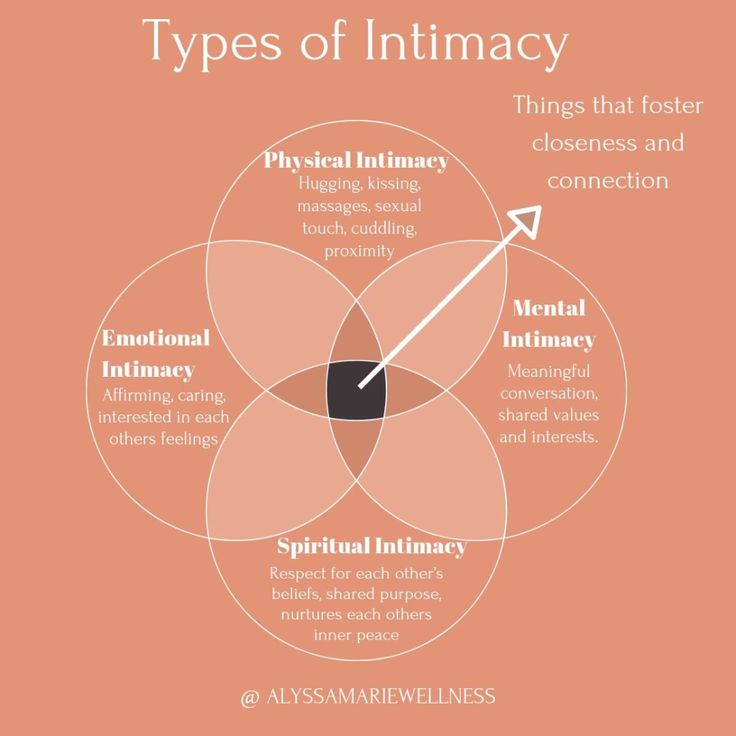 People with a fear of intimacy can often have low self-esteem and believe they have to be perfect to earn love. Because of that, you might default to cognitive distortions like all-or-nothing thinking (For example, "I can only date when I have a six-figure job or when I lose 10 pounds!") and project those feelings of inadequacy on your partner.
People with a fear of intimacy can often have low self-esteem and believe they have to be perfect to earn love. Because of that, you might default to cognitive distortions like all-or-nothing thinking (For example, "I can only date when I have a six-figure job or when I lose 10 pounds!") and project those feelings of inadequacy on your partner.
8.
You have a complicated relationship with sex.
It can go two directions: Gomez says you might prefer having sex and having one-night stands because physical intimacy feels safer than sharing vulnerable emotions. Or you might be fearful of sexual intimacy and avoid it altogether because you're scared physical contact would escalate the relationship. Either way, it's hard for you to be embodied during sex because of those insecurities.
What causes a fear of intimacy?
A fear of intimacy could be caused by past abandonment, difficult ex-relationships, or anxiety disorders. According to Gomez, childhood trauma can also create obstacles around intimacy if a person wasn't able to be authentic growing up. If someone grew up believing it was emotionally dangerous to share their needs and feelings, the experience of allowing oneself to be known can feel like anathema.
If someone grew up believing it was emotionally dangerous to share their needs and feelings, the experience of allowing oneself to be known can feel like anathema.
"In order to be able to be intimate, there needs to be a sense of safety to show those vulnerable parts," she says. "If the environment responds to vulnerability with punishment, shame, and guilt—like when children are overwhelmed with big emotions, make a mistake, mess or have their interests dismissed—then it lets the child know that it's not safe to show those parts if it happens on a consistent basis."
As an adult, without the early experience of safe intimacy, they repeat what they know. After a while, it becomes automatic to disengage and detach. Being extremely close with someone doesn't seem like an opportunity for worthwhile connection but an invitation for disappointment.
"Disconnection from others, while lonely and distressing, can also be comfortably uncomfortable," Gomez continues. "You know what to expect. Being intimate when feeling unsafe is terrifying."
Being intimate when feeling unsafe is terrifying."
Summary
A fear of intimacy can be caused by past experiences of trauma, abandonment, or being punished or shamed for showing vulnerability, whether in childhood or in past relationships.
How the fear of intimacy affects relationships.
When someone who is afraid of intimacy begins to date someone, the relationship may progress normally until the connection becomes more real. As the relationship intensifies, instead of opening up to build trust, a person with a subconscious fear of intimacy might find themselves pulling away or nitpicking the relationship's perceived faults. Doing this creates tension and problems in the relationship.
"It can lead to feeling disconnected in a romantic relationship [by] not sharing feelings, thoughts, opinions, physical intimacy, dreams, goals, or even financial concern," Gomez says. The other partner can then harbor "feelings of resentment, guilt, shame, and sadness. " But the harder they try for more, the harder the person with a fear of intimacy may forcibly keep up their boundaries to minimize the anxiety they're feeling, even at the cost of pushing their partner away.
" But the harder they try for more, the harder the person with a fear of intimacy may forcibly keep up their boundaries to minimize the anxiety they're feeling, even at the cost of pushing their partner away.
Gomez does note that it's always OK for people to want to take their time in a new relationship and not want to rush into intimacy too quickly. Some people also simply prefer more casual relationships, and there's nothing wrong with that. The key is understanding the difference: A casual dater chooses not to get too invested because they want to explore their options or are just not looking to settle down, whether for now or at all. On the other hand, a person with a fear of intimacy actively wants commitment. But as soon as they come close to receiving it, their fear activates, and they push away the connection that they do ultimately want.
The role of attachment styles.
Fear of intimacy is often related to a person's attachment style. In the 1950s, psychologist Mary Ainsworth and psychiatrist John Bowlby proposed that one's attachment style is shaped and developed in early childhood in response to our relationships with our earliest caregivers.
If you grew up with your caregiver meeting your needs, Lurie says you develop a secure attachment style in which you feel worthy of love and confident in creating emotional connections. "They know that it is OK to need or depend on others, and they value being needed in return," she explains. "Intimacy and vulnerability are not a challenge, as a securely attached individual has a strong sense of self and isn't dictated by fear of rejection or a fear of losing themselves."
However, if you didn't experience that safe early connection, it can lead to an avoidant, anxious, or fearful attachment style in which you're respectively fearful of people being too close, too far, or both at the same time. Someone with an avoidant attachment style is terrified of engulfment, so they push people away, while someone with an anxious attachment style has a strong fear of abandonment, so they pull people in tightly. A fearful attachment style is a combination of anxious and avoidant styles, so a fearful attacher's behaviors can be doubly confusing in the face of intimacy.
"A fear of intimacy is most common with those who have an avoidant or fearful-avoidant style," Lurie notes.
How to overcome the fear of intimacy.
1.
Get to the root of it.
If you have a fear of intimacy, it's helpful to get to the root of it. "Taking the time to explore and understand one's attachment style and relationship patterns is likely the first step," Lurie says.
In self-examination, Lurie recommends looking at the overall patterns. "Attachment theory creates the illusion that we all fit neatly into these boxes [when] in reality, many of us display some different attachment traits in personal relationships or at different times of our lives," she says.
2.
Decide how you want to approach future relationships.
"Once there is a clearer understanding of one's attachment style and how they engage in their relationships, they can be more thoughtful about how they want to engage in the future and slowly challenge themselves to seek out safe relationships to be vulnerable," says Lurie.
3.
Nurture a safe environment within relationships.
If your partner has a fear of intimacy, healing can happen. But not until the person with the fear of intimacy can practice what it's like to communicate their thoughts out loud safely.
"The most important thing is safety. If you're going to talk to your partner about how you want to be intimate, you need to make sure to leave your judgments, assumptions, accusations, and problem-solving at the door," Gomez advises. "It's about being open and honest with your feelings, having compassion for yourself and your partner, and listening."
4.
As a partner to someone afraid of intimacy, avoid pressure and personalization.
As you listen, hold them with generosity and try to avoid personalizing what they're telling you. "It takes time to build that trust. It doesn't necessarily say anything about you if they have trouble being intimate," she adds. "This is not the time or place to convince them why it's safe to be open because that will lead to 'yeah but. ..' or them shutting down if they're not ready. If you're even able to get to this part in the conversation, that is already a new level of intimacy."
..' or them shutting down if they're not ready. If you're even able to get to this part in the conversation, that is already a new level of intimacy."
5.
Work with a professional.
If you're feeling blocked in your introspection, Lurie suggests finding a therapist who can help you compassionately connect the dots and create new healthy patterns.
The takeaway.
Patience is important as you embrace vulnerability, so take your time understanding what safety and intimacy mean to you. It'll be a heart-opening journey to let people in and feel happiness, instead of fear, to take the risk—because the connection is worth it.
"As a reminder, it takes time for people to be intimate with others because it does require a level of trust. It's not healthy or safe to share every vulnerable thing when there is no evidence of safety," Gomez notes. "When dating, it's OK to not be vulnerable 100% all the time but to increase intimacy as time goes on if the person is safe. "
"
what is the fear of intimacy and why it occurs
Fear of intimacy hides many other problems associated with low self-esteem, traumatic experiences in relationships, vulnerability. Someone decides to work through negative attitudes with a therapist, while others prefer to abandon the relationship. We understand what the fear of intimacy is, why it arises and what to do if your partner turned out to be counter-addicted.
How the fear of intimacy manifests itself
You may have come across the following situation: a person enters into a relationship (friendly or romantic), he is sincerely interested in his partner, but at one moment he suddenly becomes cold and begins to move away. This is one of the ways to avoid real emotional intimacy, such fear is one of the types of psychological protection. This type of attachment disorder is also called counter-dependence, or avoidance addiction.
Counter-addicts actually want to build close relationships, but unconsciously fear them and avoid them in a variety of ways.
-
One of them is the construction of "ideal images" that no one will match in real life.
-
The desire to become perfect oneself is also characteristic - this is how the attitude appears that only “perfect” people can build relationships. As a rule, in this case, a person fills all the time with some additional activities and at the same time it seems to him that he is doing “not enough”.
In addition, because of the fear of intimacy, some people tend to choose partners who are indifferent to them, because in this way they experience the desired emotions and feelings and at the same time maintain an emotional distance. Such a choice is unconscious, and the person himself constantly asks the question “Why don’t they love me?” or "Why do I never get reciprocated?".
Causes of avoidance addiction
Counterdependence is associated with a feeling of vulnerability, fear of being rejected.
“Because intimacy in a relationship makes a person feel more vulnerable and creates the potential for strong negative emotions, it is often avoided. This does not mean that such people do not have enough friends. They may even be considered popular, especially since they are likely to be successful and competitive. However, such people are unlikely to share their personal experiences with others and may occasionally feel socially isolated.”
This does not mean that such people do not have enough friends. They may even be considered popular, especially since they are likely to be successful and competitive. However, such people are unlikely to share their personal experiences with others and may occasionally feel socially isolated.”
Hal Schori, Clinical Psychologist and Professor of Clinical Psychology at Widener University
Most likely, the person was not accepted in a previous relationship, be it family, friends, classmates, former lovers. Of course, like many psychological traumas, the roots of the problem go back to early childhood.
“Most self-protection strategies are formed in early childhood. For a child, they represent the best solution that he resorts to in difficult situations. Subsequently, these strategies become unconscious and are automatically activated each time when we find ourselves in a situation similar to those childhood crises that were never resolved in their time.
Ilse Sand, psychotherapist, author of the book “Fear of Proximity. How to stop being defensive and start loving”
How to stop being defensive and start loving”
Perhaps the child did not receive enough care from his parents (for example, they spent too much time at work), faced high demands on himself, because of which he believed that “love must be earned.”
“At the same time, it doesn’t even matter whether the parent really showed such behavior or whether his child just saw and felt it. For example, the mother worked hard and tried very hard to pay attention to the child, but it was not enough.”
Ilse Sand
Another reason may be the parents' overcontrol, who forbade any form of independence. So, the child began to associate close relationships with lack of freedom, he felt pressure on himself. These feelings persist, and the notion emerges that emotional intimacy equals incarceration and independence.
It is also possible that the child separated from the mother too early, because of which he did not have enough care. He has some loss, and the trauma from it remains.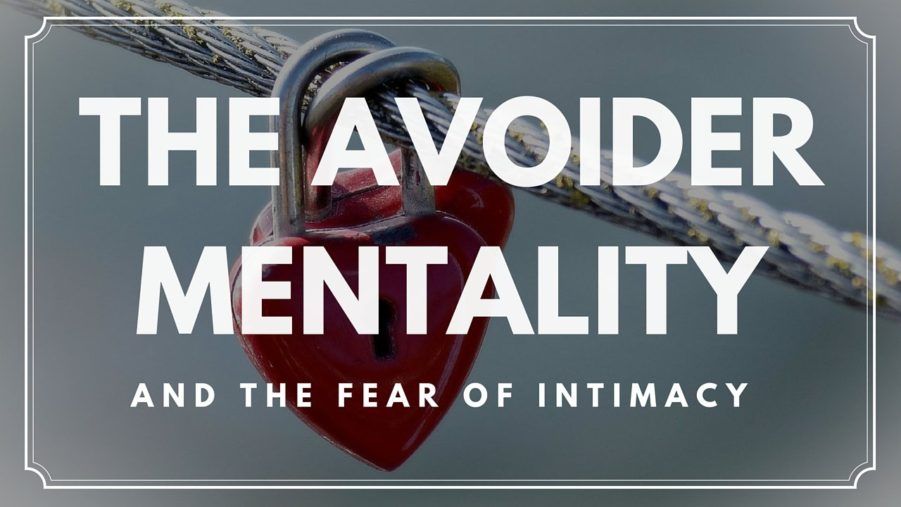 Relationships are associated with pain, and it is easier for a person not to start them at all than to be rejected at some point.
Relationships are associated with pain, and it is easier for a person not to start them at all than to be rejected at some point.
How to cope with the fear of intimacy
In order to find the causes of fears and, accordingly, ways to work on them, it is worth contacting a psychotherapist. In the course of working with him, you will be able to:
Learn to recognize your own feelings
Since some people with avoidance addiction do not know how to recognize their feelings, one of the first steps in psychotherapy is working with their emotions. If a person also learns to express them correctly, he will be able to state his experiences, worries and discuss them with another person.
Learn to build personal boundaries
Personal boundaries are essential in building any relationship, even the closest. The task is to understand where these boundaries are and how to designate them. Due to weakly built personal boundaries, counterdependent people can avoid conflicts, because they become vulnerable in such situations.
Get rid of false beliefs
Counterdependent people have such false beliefs as "If I get close to someone, the person will see my imperfection and leave", "Love and care must be earned", "If I enter into a close relationship, then I will lose my freedom." Working with irrational attitudes is to reformulate them and realize these changes.
What to do if you're in a relationship with a counter-dependent person
Hal Schori, a clinical psychologist and professor of clinical psychology at Widener University, suggests talking to your partner more often about your emotions, thereby showing him that it's safe to show them.
If the avoidant needs to leave, don't chase him. He will just run faster. Give this person enough space and the opportunity to worry and miss you (of course, for this you will need to be able to regulate your own emotions). "This mode of communication can become an emotional mirror that will help the avoidant person gain more personal awareness," writes Schori. The psychotherapist also does not recommend holding a person if he once again seeks to escape: such attempts will only push him away.
The psychotherapist also does not recommend holding a person if he once again seeks to escape: such attempts will only push him away.
At the same time, Hal Shorey states: "Realize that if you need more intimacy in your relationship, you may have chosen a partner who will have a hard time giving it to you" . Accordingly, excessive demands will not allow you to build a healthy relationship.
Lyubov Karas
Tags
#psychology
#erudition
what is emotional unavailability - Monoclair
Headings : Favorites, Latest articles, Psychology
Found something useful here? Help us stay free, independent, and free by making any donation or purchasing some of our literary merchandise.
Why do we fear intimacy and refuse to show our feelings? What's stopping you from trying to build a truly trusting relationship? How is narcissism formed and why does it entail indifference to the feelings of others? And what to do if your partner or you yourself find yourself in a state of emotional unavailability? We deal with the practicing psychotherapist Larisa Pisarenko.

The concept of emotional unavailability is usually applied to those who stubbornly build a wall between themselves and others in an attempt to avoid emotional intimacy. Any relationship with such people usually does not bring anything but pain and mental exhaustion. Despite the fact that the phenomenon of emotional unavailability is practically not talked about, it is one of the most common causes of divorce.
It is easy to understand that you have an emotionally unavailable person in front of you. Usually such people get in touch at a convenient time for them, easily forget about their promises to write, call or meet, do not ask you about the details of your life, do not like to talk about themselves. Months after talking with such a person, you may be surprised to find that you don’t know anything about him at all.
Such people diligently avoid any conversation about feelings, no matter theirs or yours. At the same time, in situations not related to the interpersonal sphere, they can be very active and emotionally interested. They are happy to immerse themselves in conversations about politics and social trends, talk about history and environmental issues, and sometimes even become ardent activists, for example, they protect animals or are interested in the living conditions of refugees.
They are happy to immerse themselves in conversations about politics and social trends, talk about history and environmental issues, and sometimes even become ardent activists, for example, they protect animals or are interested in the living conditions of refugees.
Unlike hikikomori, people with schizoid organization, autism or schizophrenia, such individuals do not seek social isolation: they successfully build a career, lead an active life in social networks and often give the impression of open and sociable people. But at the same time, their inner world remains closed. They are annoyed and frightened when someone tries to talk to them about their experiences or communicate their own. Usually such conversations end with the flight of emotionally unavailable people into their usual comfort zone.
It is important to understand that emotional inaccessibility is not a disease, but a condition consciously or subconsciously chosen by a person. Psychologists note that it can be both permanent and temporary. Constant coldness usually refers to people who have experienced early trauma. For example, a child who has witnessed an unhappy marriage of his parents may subconsciously decide that emotional intimacy is dangerous and only painful, and avoid close relationships in the future.
Constant coldness usually refers to people who have experienced early trauma. For example, a child who has witnessed an unhappy marriage of his parents may subconsciously decide that emotional intimacy is dangerous and only painful, and avoid close relationships in the future.
Psychologists believe that most often these qualities are related to the narcissistic personality type. Psychotherapist Larisa Pisarenko notes:
“The described manifestations evoke the idea of a narcissistic organization of the personality. It is formed when a small person is confronted with reality too early with messages like “come on, do it yourself.” The resource of such a child has not yet developed enough to independently solve the problems that his close environment sets before him. Assistants and defenders on the horizon are not found. And they manage. And they did it. And they can handle everything. But they paid for it with inner emptiness. They survived through a deep lock-in of difficult and complex feelings (after all, when there is little strength, but you have to cope, you simply don’t have the strength to feel, all the energy is spent on coping with the situation).

These are people of action, action. Words of sympathy will not be said and help will not be asked. If they are asked: “Why didn’t you tell, didn’t share what is happening to you,” they can be sincerely surprised: “Why do you need it.” Early on they received the message that their predicament was unimportant. We learned early that spiritual intimacy, support are concepts that have nothing to do with them personally. ”
Another reason for constant coldness may be the "social program" of a society in which it is simply not customary to openly express one's feelings.
Temporary blocking of emotions also occurs after traumatic events - divorce, severe breakup, betrayal of a friend. The more such experience in the life of an individual, the more likely it is that one day he will close his inner world from others.
Psychotherapist explains:
“Narcissistic trauma, in fact, inevitably leads to emotional unavailability. The narcissistic edge can also come to the fore during life, if circumstances associated with betrayal, trauma of trust contribute to this.
When a person seems to internally decide: “I won’t give in anymore. I myself,” and slams the doors to his world consciously, paying with loneliness and formality for the absence of new pain.”
Interestingly, emotionally unavailable people build their comfort zone step by step and feel quite good in it. Outwardly, this can manifest itself in an obsessive desire for absolute independence, the desire to live alone, work for yourself, keep everything under control. All this allows you to avoid interpersonal relationships - an area that requires openness, trust and the need to make compromises.
Deepening
- Tragedy of the Narcissist: Compilation
- Collective narcissism: when does love for one's nation or group become pathological?
Problems arise when they still try to enter into friendships or even love relationships. The total emotional closeness of such a person can turn into a deep depression for his partner. Those who are close to him, as a rule, feel abandoned, unnecessary, used. At the same time, an emotionally closed person can claim that he loves and appreciates, but does not openly demonstrate his interest and continue to live by his own rules. Usually such relationships end with the patience of the second partner. Interestingly, after his departure, a person with a narcissistic personality organization may sincerely not understand where he made a mistake.
Those who are close to him, as a rule, feel abandoned, unnecessary, used. At the same time, an emotionally closed person can claim that he loves and appreciates, but does not openly demonstrate his interest and continue to live by his own rules. Usually such relationships end with the patience of the second partner. Interestingly, after his departure, a person with a narcissistic personality organization may sincerely not understand where he made a mistake.
According to psychotherapist Larisa Pisarenko, behind emotional closeness there is a fear of vulnerability and problems with trust:
“The drama of the narcissist is that it is cold inside. Empty and cold in this castle he created. And lonely. Intimacy causes fear of falling into a trap. You have to pay for everything. The narcissist cannot accept that he can be loved just like that. He was loved from childhood for something.
Narcissistic damage ranges from some sharpened personality traits to clinical narcissism, where the person is incapable of long-term intimate relationships and easily changes environment.
To, firstly, “not to pay, not to be indebted to anyone” and, secondly, “suddenly, there, around the corner, it’s better” - the best partner, better relationships, work and others like him. And formal communication is a defense for the narcissist. It's safer that way."
At some point, emotionally unavailable people become frightened. On the one hand, in their life “everything is under control”, everything happens approximately according to their scenario. But sometimes they feel total loneliness, and do not know what to do with it. After all, letting someone into your life means taking a risk and resigning yourself to the fact that for the first time in a long time something can go wrong, because the personality of another cannot be programmed the way we want.
“Narcissists come for changes when they begin to understand that other people live somehow easier, happier, warmer. Often the narcissist's longing for such a safe and accessible reality of intimacy leads him to see a therapist.
A narcissist worked out in therapy is great! While retaining the ability to accomplish and actively implement his goals, at the same time he begins to “let go” of himself in terms of assessments for these achievements, begins to stop in a continuous run through life, allow himself to feel joy, sadness, the whole rainbow of emotions that happens in the soul . It ceases to evaluate and devalue oneself and others, ”the specialist reports.
But if there is no awareness of the reasons for one's actions and attempts to change are still far away, then it is very difficult to be close to an emotionally blocked person. The union of two narcissists will most likely not be constructive either: partners will prefer to compete with each other instead of supporting and feeling.
Larisa Pisarenko remarks:
“You can build relationships with such people if you don't wait for them to melt away. If the level of protection is strong, and the willingness to trust is low, then this may not happen.

At the same time, according to the expert, one of the keys to the narcissist's desire to change may be a strong feeling for another. However, you need to understand that the likelihood of such a scenario is low, and most partners of emotionally blocked people need to accept the fact that if, no matter what, they are going to save the relationship, they will have to sacrifice their need for warmth, as obsessive attempts to change the narcissist from the outside lead only to its distance.
Read also Attachment theory: how early relationships with parents affect our lives
Cover: John William Waterhouse, Hylas and the Nymphs (1896) / © Wikimedia Commons
Monoclere is an independent project. We do not have investors, advertising, paywalls - only ideas and knowledge that we want to share with you. But we can't do it without your support. By donating or purchasing some of our literary merchandise, you will help us stay free, free, and open to all.

